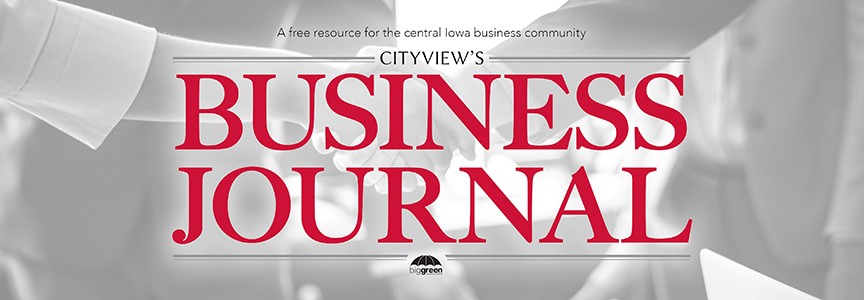Should you, or shouldn’t you? Learn about policies, options and legal obligations for your small business
Employers need to weigh whether a policy will cover their wants while ensuring they respect the rights of workers. In Iowa, private business owners have the option of making drug and alcohol testing a condition of employment, but there are rules they must follow. The U.S. Department of Health and Human Services reports that almost 43 percent of full-time employees work for a company that requires drug testing as a condition of employment.
Here are four things to consider:
Should your business have a drug-testing policy?
Biaggi’s Ristorante Italiano in West Des Moines does not require drug testing for its 60 employees or any job applicants. Any decision to enact a policy would be directed from the corporate office, says John Leiendecker, the owner/managing partner of the restaurant.
“We could always ask for it if we felt the need was there for it, but we haven’t had any situations where it’s been necessary at this point,” he says. “If we had an injury or an accident, we could ask for drug testing to take place for those people involved in that, but we haven’t had a need for that.”
While all businesses may not have a policy for drug testing, almost all have one for drug usage, says Amanda James, an attorney with Sullivan & Ward P.C. in West Des Moines.
“In most manuals, you’ll find something about no drug or alcohol on site, especially while operating equipment,” she says. James works with businesses and helps create employee handbooks and policies.
Biaggi’s policy is part of its employee handbook, which is standard among most businesses that have policies. It addresses drug and alcohol use and prohibits employees from selling and talking about or partaking in or bringing drugs “on Biaggi’s premises or reporting for work under the influence.” Such action could result in disciplinary action or dismissal, Leiendecker say citing the employee handbook.
Full Circle Child Development Center in Waukee does not have a drug testing or drug-usage policy for its preschool/childcare center, which employees 45, says Jarrid Cyr, director of the facility. He said drug usage is not addressed in the employee handbook but that he would add it after being contacted for this article.
“Other than that, they can’t smoke on our premises,” he says. “That is in the handbook.”
Cyr says he doesn’t think a drug-testing policy is needed because the facility has not had any employee issues that would justify the need for one.
What should your drug testing policy include and cover?
Companies that require pre-employment and random drug screening are required to include the information in their advertisements and on the job application and to orally inform applicants, James says.
The employee or applicant also needs to be given an opportunity to list any legal drugs he or she may be taking.
If the information about drug testing is located in the employee manual or handbook, it’s recommended the employee be required to sign a document saying he or she is aware of the policy.
James says business owners who enact drug testing policies also need to provide employees with access to an assistance program should they feel as though they have a drug or alcohol abuse problem. Employers are not required to pay for rehabilitation for an employee who may test positive for illicit drug use; however, they may be required to pay some rehabilitative costs for someone who tests positive for alcohol.
Supervisors must receive training about the program and the drug use and testing policy so they can be aware of the signs and know how to spot an employee who may be impaired.
Drug-testing policies fall into two categories: regulated and non-regulated employees.
Another exception is truck driving positions, which are referred to as regulated positions. The U.S. Department of Transportation requires all Commercial Driver’s License drivers to undergo drug testing. The same is true in Iowa.

According to the Iowa Truck Information Guide from the Iowa DOT, all drivers of commercial motor vehicles or special equipment that requires them to have a CDL must be enrolled and tested in a company controlled substance and alcohol testing program. The company policy must include written policies and provide testing for pre-employment, at random times, post-accident, in situations of reasonable cause, upon returning to work, and as follow-up.
Solar Transport in West Des Moines requires all drivers to meet DOT qualifications and pass a background check and pre-employment drug tests, according to its website. A company official declined to answer further questions.
Atlantic Coca-Cola Bottling Co. in Waukee is a drug-free workplace for all 200 to 220 employees. Truck drivers — the company has 25 full-time drivers — are subject to following DOT testing regulations, but all employees — from warehouse workers to office staff to merchandisers — are subject to pre-employment/post-offer drug tests and ongoing random drug testing, says David Larson, the human resources director for the company. The company has employees who go to customer sites, set up displays and have constant contact with the public.
“It’s a business decision we’ve made, and part of the reason we do it is because it’s about safety — safety for our employees and safety for our customers,” he says, adding that the company’s drug use policy also prohibits substances from being in company vehicles, facilities or on the employee while he or she is at work.
If an Atlantic employee tests positive for drugs, he or she is terminated, Larson says.
What drug testing options are available locally?
Business owners can contract with a third-party administrator, a lab or a healthcare facility to conduct drug testing, analyze the results and provide them with reports. In Iowa, only an oral (saliva) or urine test is allowed for the purposes of drug testing.
An employer may only take action based on the results of a blood test if the employee was involved in an accident at work, and the blood test was administered by a care provider without direction from the employer, according to the State of Iowa Governor’s Office of Drug Control Policy.
Dr. Barry Sample, the senior director of science and technology for Quest Diagnostics Employer Solutions, which has a facility in West Des Moines, says an oral and urine sample will show drug usage within three or fewer days for a casual user. A hair sample, which is not allowed in Iowa, would have a 90-day window and show repetitive use.
Tests can range from $35 to $60 per test depending on whether the sample receives complete service, says Steve Krob, manager of business operations for UnityPoint Health Occupational Medicine. The healthcare system conducts drug testing services.
A complete service includes sample collection, processing it in a laboratory and having a medical review officer, who is a certified physician, report the results.
A business owner also can have a physician or drug testing company collect samples and send them to another location for testing. Those tests range in cost from $10 to $25.

Krob says he would recommend that small- or medium-size businesses (up to 50 employees, which is what most of UnityPoint’s customers are) conduct full-service testing.
Sample says oral tests have an advantage in that they can be performed in front of a supervisor, and it’s easier for the hiring supervisor to collect the sample and send it for testing.
“That’s an advantage for the employers because they don’t have to wait for the prospective employee to make their way to a collection site,” he says. “Also, for current employees, they don’t have to have the person leave work and be paid to have the collection done.”
Most labs have a pre-defined testing panel. The most common is the five-panel drug screen, which has been used for 30 years and was the standard for the DOT and Federal Aviation Administration. It tests for the most commonly used drugs: amphetamines, cocaine, THC/marijuana, opiates and PCP. The test has now been modified to include some additional substances that fall under the opiate and amphetamine categories.
Sample says expanded panels are done for positions where the employee’s job could affect the safety or life of others or for those such as pharmacists or healthcare workers who have access to numerous types of controlled substances.
“They may do a more expanded panel to do more prescription and other more powerful pain killers,” he says. “The choice of which drugs to do is up to the employer.”
An immediate “non-negative” test isn’t an immediate cause for dismissal, Krob warns. It can be necessary to get more detailed information about the result from the donor and ensure the positive test wasn’t a result of prescribed medication.
Krob says it’s more common for the trade, contracting and construction business to conduct pre-employment drug tests but that generally testing is done across a wide range of industries.
Unity Point conducts a rapid drug screen for its new employees. Krob says this is a quicker option that is common among most clients. A rapid test consists of a collection device that tests for drugs on the spot once a urine sample is poured into the device. If a sample were to test positive, it is then sent to a lab for further review.
Does your drug testing policy meet legal obligations?
Some businesses are automatically required to conduct drug tests for their employees. Any business that receives $100,000 or more in federal money, whether it’s contracts or grants, is required under the Federal Drug-Free Workplace Act to test all employees for drug use, according to the NFIB.

A company’s drug-testing policy has to strictly adhere to Iowa law, or the employer could be found in violation, James says.
The business must pay for all costs associated with the initial testing and can only test during or immediately before or after a work period. Iowa law states employees must pay for a second test if requested should the first result be positive. If that test is negative for use, the employer may be required to reimburse the employee
Employees must be notified of all aspects of the testing in the appropriate order and method. All samples must be obtained lawfully and with the employee or job applicant’s consent.
If one employee is going to be tested, all employees should to prevent claims of discrimination. Drug tests also must be conducted with a random sampling. Specific employees cannot be targeted; however, there are stipulations.
Iowa law allows for testing if there has been a reportable injury. Many employers do post-accident testing as part of their worker’s compensation program and for compliance reasons. Any drug test that is conducted based on suspicious activity or in result of accident or injury, must be conducted immediately. For example, if a truck driver backs onto a light pole on Thursday, the employer cannot wait until Monday to conduct a drug or alcohol test.
If the employer has reasonable suspicion the employee may be under the influence and has documented evidence, a drug test can be requested on the spot, says Krob with UnityPoint.
“It puts the control in the employer or supervisor’s hands,” he says. “As long as they’ve documented and witnessed behavior, they can order that test. It’s very common to do that with alcohol if you smell alcohol.” ♦


superbeets review
You have made some decent points there. I checked on the net to find out more about the issue and found most individuals will go along with your views on this website.|